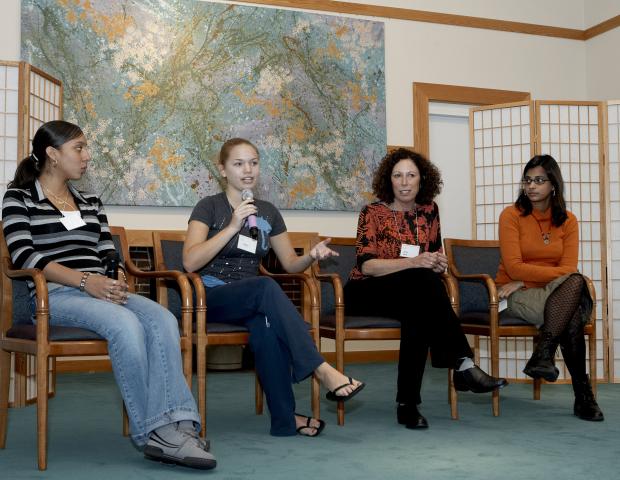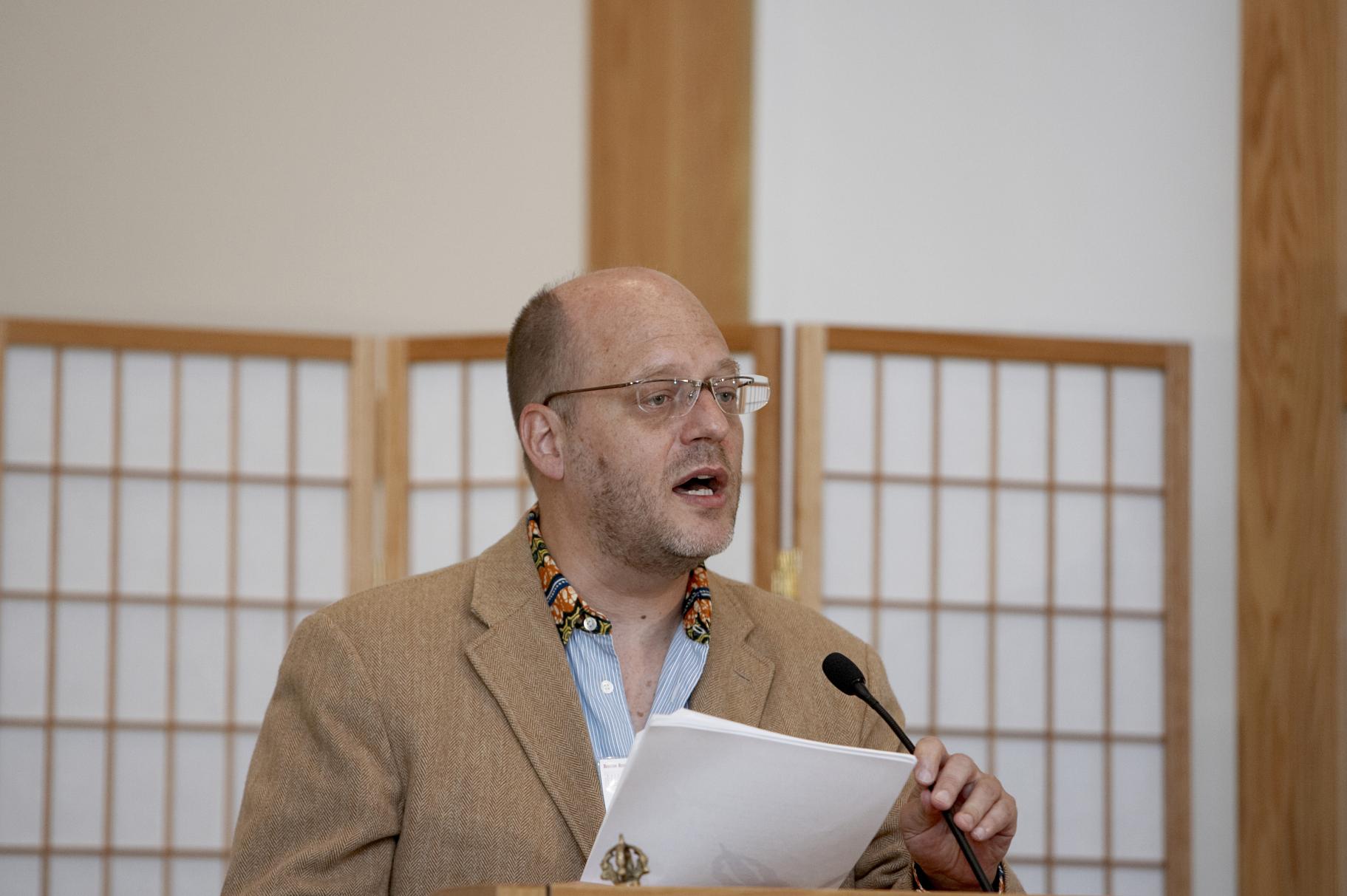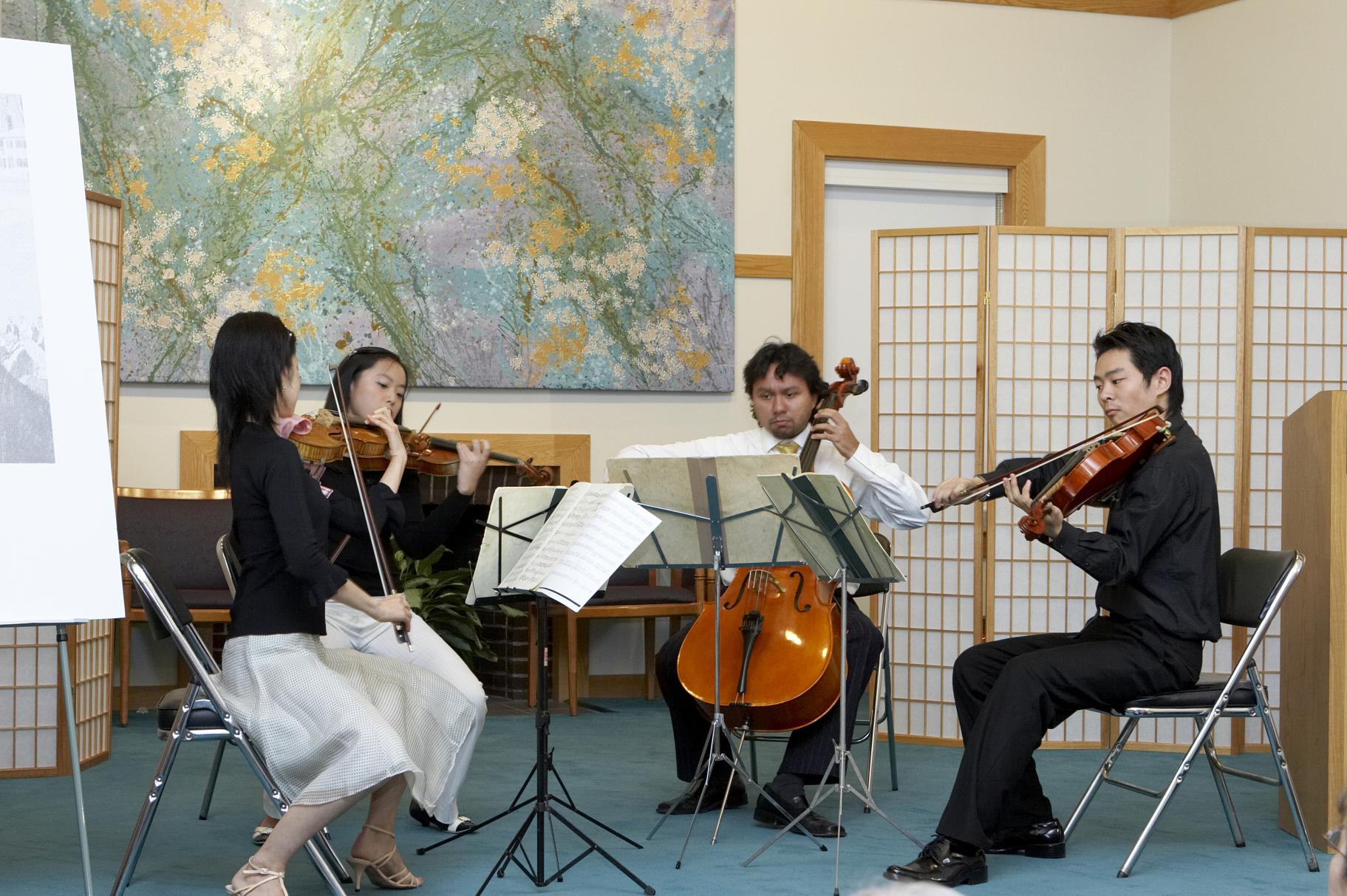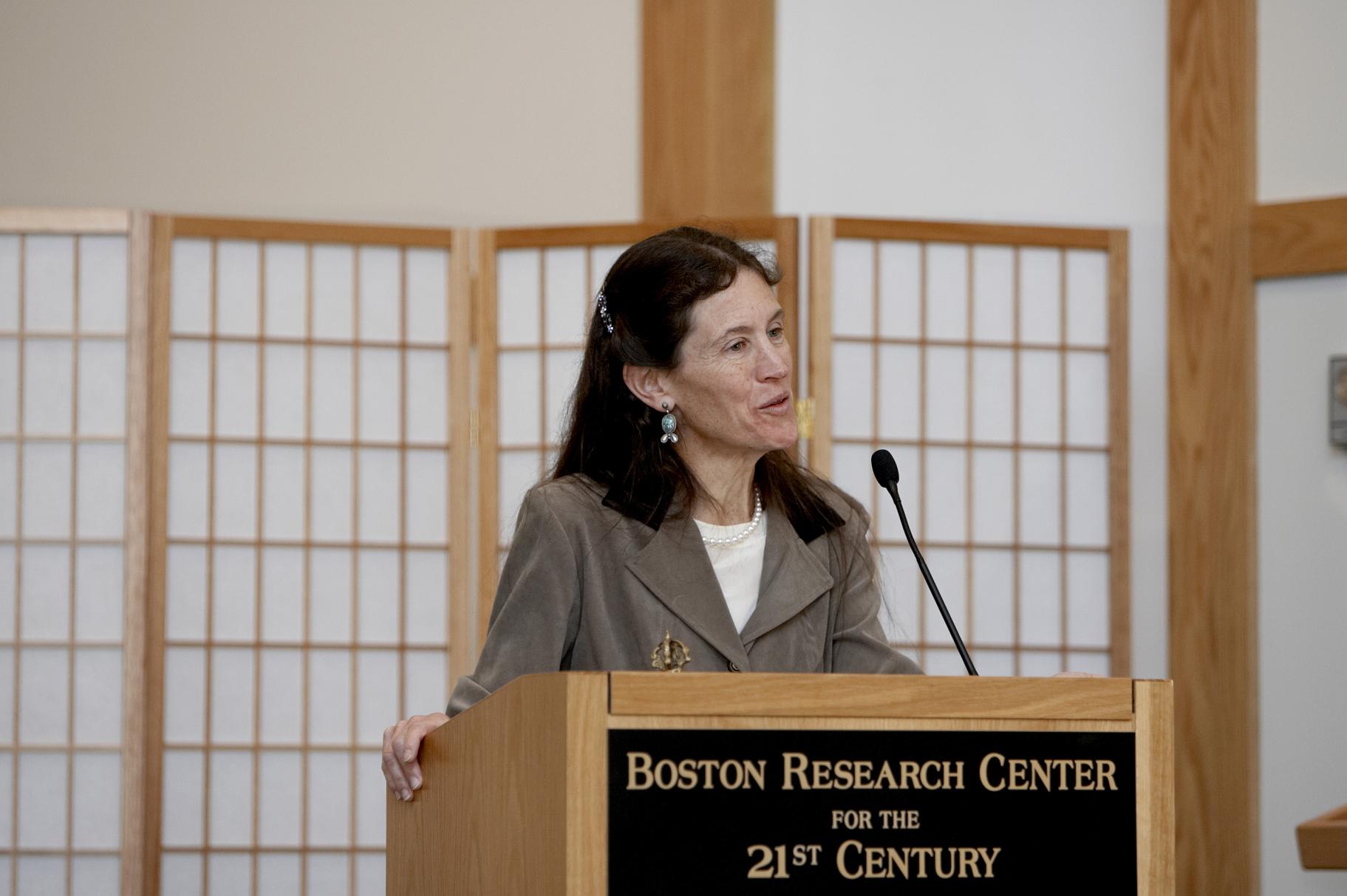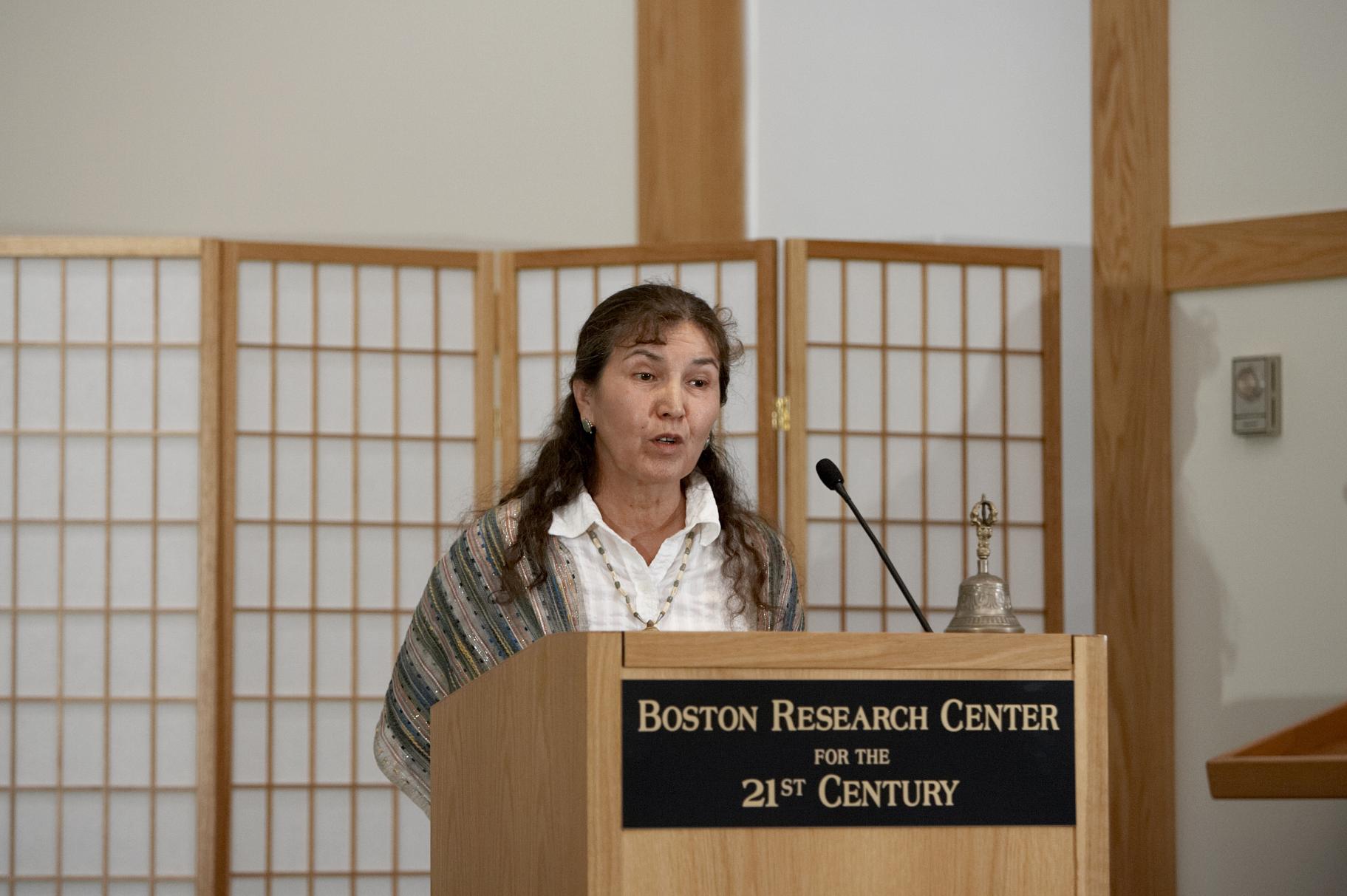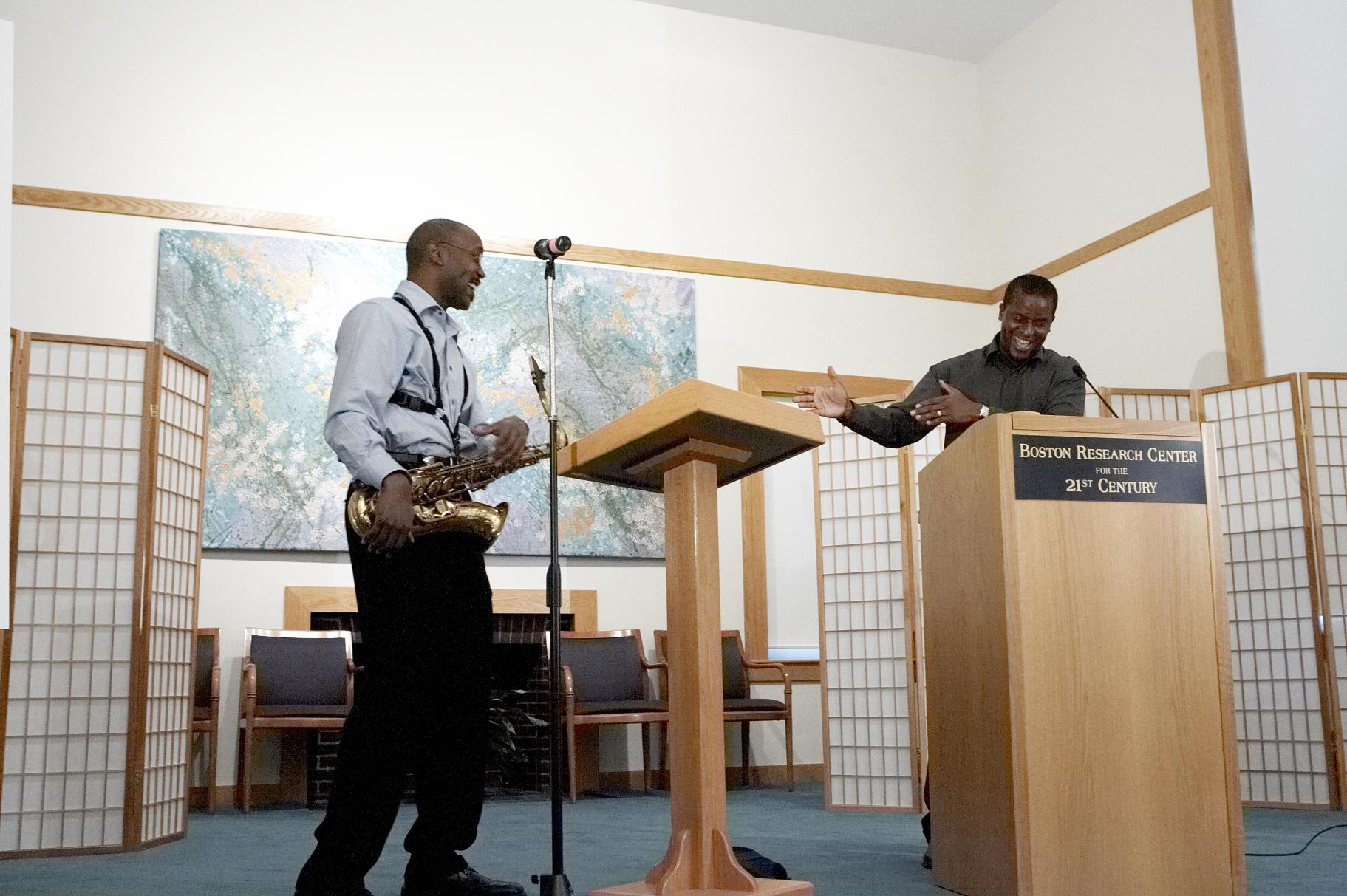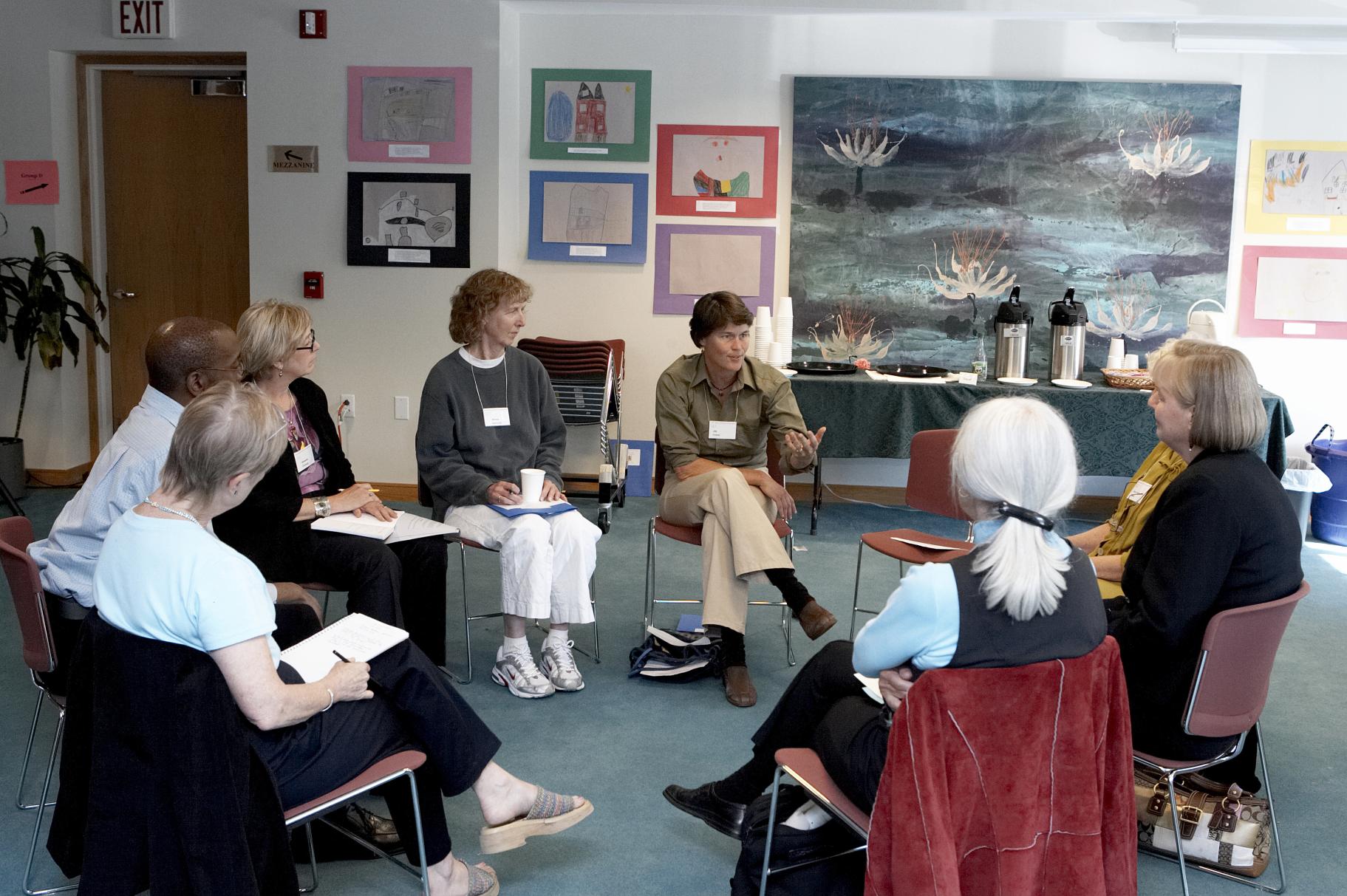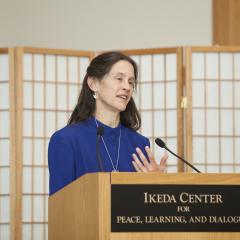2006 Ikeda Forum: Emerson and Imagination
Presentation at the 2006 Ikeda Forum
This is a report from the 3rd Annual Ikeda Forum for Intercultural Dialogue, held over the course of two days in September 2006. Called “Emerson and the Power of Imagination,” the forum addressed two core questions: What can we learn from the thought of Ralph Waldo Emerson about how to live in the world today? How might the imagination help us to envision—and realize—the possibilities for our country?
Welcoming Remarks
What can we learn from the thought of Ralph Waldo Emerson about how to live in the world today? How might the imagination help us to envision—and realize—the possibilities for our country? The Third Annual Ikeda Forum for Intercultural Dialogue spoke to these essential questions in the fall of 2006 with a two-day seminar and a public forum that attracted over 150 participants.
The public forum began with a greeting from executive director Ginny Benson and a heartfelt welcome from BRC president, Masao Yokota, who shared a personal memory from many years ago of a late night walk with the Center’s founder, Daisaku Ikeda. As he stood on a mountain with Ikeda and fellow students, a crescent moon glowed in the night sky. “Like the intellect, this moon is both sharp and bright,” Ikeda remarked, before going on to pose this question, “Which side of this moon will you emulate? Will you cut peoples’ feelings with its sharpness, or illuminate their potential with its brightness?”
For Yokota, this memory was a way of understanding how imagination can be constructive or destructive depending on one’s generosity of spirit. The anecdote also recalled not only Ikeda’s poetic sensibility rooted in Nature, but a kind of practical affinity with Ralph Waldo Emerson’s way of looking at the world. “We live by our imaginations, by our admirations, by our sentiments,” said Emerson, as if the possibilities of each moment and our interactions with others constantly offer new ways of being in the world.
Poetry and Politics
This theme of possibility was also addressed by Andrew Gebert’s reading from “Sun of Jiyu,” a poem by Daisaku Ikeda. Jiyu, Gebert explained, is a word that suggests emerging out of the Earth as well as the universal reality of a vast human potential or compassionate nature that is rooted in each life. The voice of the poem poses a critical question to America:
What is to become of the
spirit of your nation
fostered by so many people of
wisdom and philosophy?
In his essay entitled “Politics,” Emerson’s words echo Ikeda’s theme of recognizing the role of enlightened, thoughtful individuals in creating this United States. Emerson encourages his readers to look deeply and not fail to appreciate the influence of such individuals on the nation’s institutions: “In dealing with the State, we ought to remember that its institutions are not … superior to the citizen: that every one of them was once the act of a single man.” Individuals, he goes on, can remake and advance these institutions, but only with proper education: “If men can be educated, the institutions will share their improvement, and the moral sentiment will write the law of the land.”
“If men can be educated, the institutions will share their improvement, and the moral sentiment will write the law of the land.”As Emerson speaks from a spiritual core, he honors the individual and yet conceives of individual rights as something that is destined to find its highest value in the collective. In this sense, there is a strong link between Emerson’s philosophy of democracy and the humanistic thought of Ikeda that also encourages the expansion of social, spiritual, and political freedom rooted in the self-cultivation of each individual.
The Necessity of Imagination
After a musical interlude from a remarkable string quartet of friends from Boston’s New England Conservatory, Professor Sarah Wider of Colgate University delivered her keynote. Her remarks focused on how human imagination might be used to address the global reality of war and violence. Entitled “Calling the Imagination Home: Traveling with Emerson on a Train of Thought,” and relying on the idea of “journey” as a metaphor, Wider’s resonant voice took the audience through a landscape of associations to arrive at stark realities and a few essential questions.
She quoted Emerson on children, “If we can touch the imagination, we serve them,” and linked this thought to the reality of children who will be born today in Baghdad, Iraq. “Yes,” she added, “we must imagine the reality of children continuing to be born in Baghdad.” Considering the current state of war and conflict in the world, Wider posed this question to the powers of the warring world: “Is that all you could imagine? Meeting violence with violence? Why, that takes no imagination at all.”
She then spoke directly to the audience: “Perhaps you don’t feel that far from the world Emerson described in the mid 1860s: ‘the prudential and economical tone of society starves the imagination?’” Sensing an atmosphere of agreement, she went on to quote from Daisaku Ikeda’s poem “Fighting for Peace”:
where people are united
in the richness of their hearts,
there peace exists
as a tangible reality.
Although she spoke in a language of possibility, it was the “tangible reality” made possible through “the power of imagination” that drove Wider along the journey of her inspiring keynote. Afterward, a thoughtful dialogue with the audience focused on the development of an ethics of imagination, the relationship between imagination and action, and the need for cultivation of a life-affirming imagination in our public school system.
Imagination in Action
The afternoon presentations explored a diversity of perspectives, each of which served as an example for the activation of imagination. A summer theater project about justice from Cambridge Rindge and Latin High School (CRLHS) was introduced by Harvard Graduate School of Education student Radhika Rao. “Imagination is spiritual, intellectual, and physical. Theater allows us to imagine what it’s like to be someone else, and so it creates a space for public conversations,” she said. With this idea in mind, CRLHS teacher Betsy Bard had developed a popular community-based theater group that incorporated elements of role-play, improvisation, and self-observation to activate the moral imagination of her students. Utilizing video clips, their presentation explored moral dilemmas that were resolved through the power of friendship.
Author and educator Jeannette Armstrong, a member of the Okanagan Syilx Nation, then revealed how Emerson’s thought might be understood “to be convergent with the way of knowledge of my people.” Focusing on the deep and complex meaning of the word “imagination,” she translated it as pasmin and then opened up an understanding of it by sharing a “teaching story” focused on the emergence of the turtle from dark river water into light. Regretting time constraints that required a mere summary of the story, Armstrong explained that for the Okanagan people, imagination is organic, embedded in the diversity of life and inseparable from the process of exploring and understanding the perspectives of all within the community. “It’s not about imagining what could be, but what must be,” she said.
William Henry Lewis and saxophonist Nathanael Fareed Mahluli then performed an abbreviated reading of Lewis’s short story, “Rossonian Days,” from his collection entitled I Got Somebody in Staunton (HarperCollins, 2005). This story, like Armstrong’s, created its own rhythmic language as it embodied the quest of a people. The “plot” revolved around a group of jazz musicians driving from Kansas City to Denver to play a “gig” at the Rossonian Auditorium. But the small story grew larger as Lewis gathered the history of jazz along the way and wove it into a fast-moving tale of dreams and destiny.
“Jazz is America’s gift to the world,” said Lewis, who demonstrated the dialogic power of words and music as he read with and to the music of Mahluli. Later, in conversation with the audience, Mahluli echoed Armstrong’s comments about the radical inclusivity of imagination for the Okanagan: “Jazz is the ultimate democratic process—not when it’s composed, but when there’s improvisation. What you speak in jazz eludes the spoken word. It’s the heart and the mind.”
Finding the Essence
Following these presentations, small group dialogues focused on two essential questions:
- In what ways can we—individually and collectively—bring imagination more fully into our lives
- How do you envision a healthy imagination contributing to social justice in the United States?
The essence of these rich conversations was then incorporated into an “improvisational poem” created by Andrew Gebert. His reading of this poem at the end of the day culminated in an awareness of the power of listening to others as an integral part of the power of imagination. It was, after all, a day of many voices and, so, many voices found a way to be heard:
When imaginations collide
Hold the dissonance.
Be able to be uncomfortable.
Learning to hold the pain
while not letting it
destroy you.
Learn not to fear pain
but believe in all the good things
that are born of it.
Photos by Marilyn Humphries
